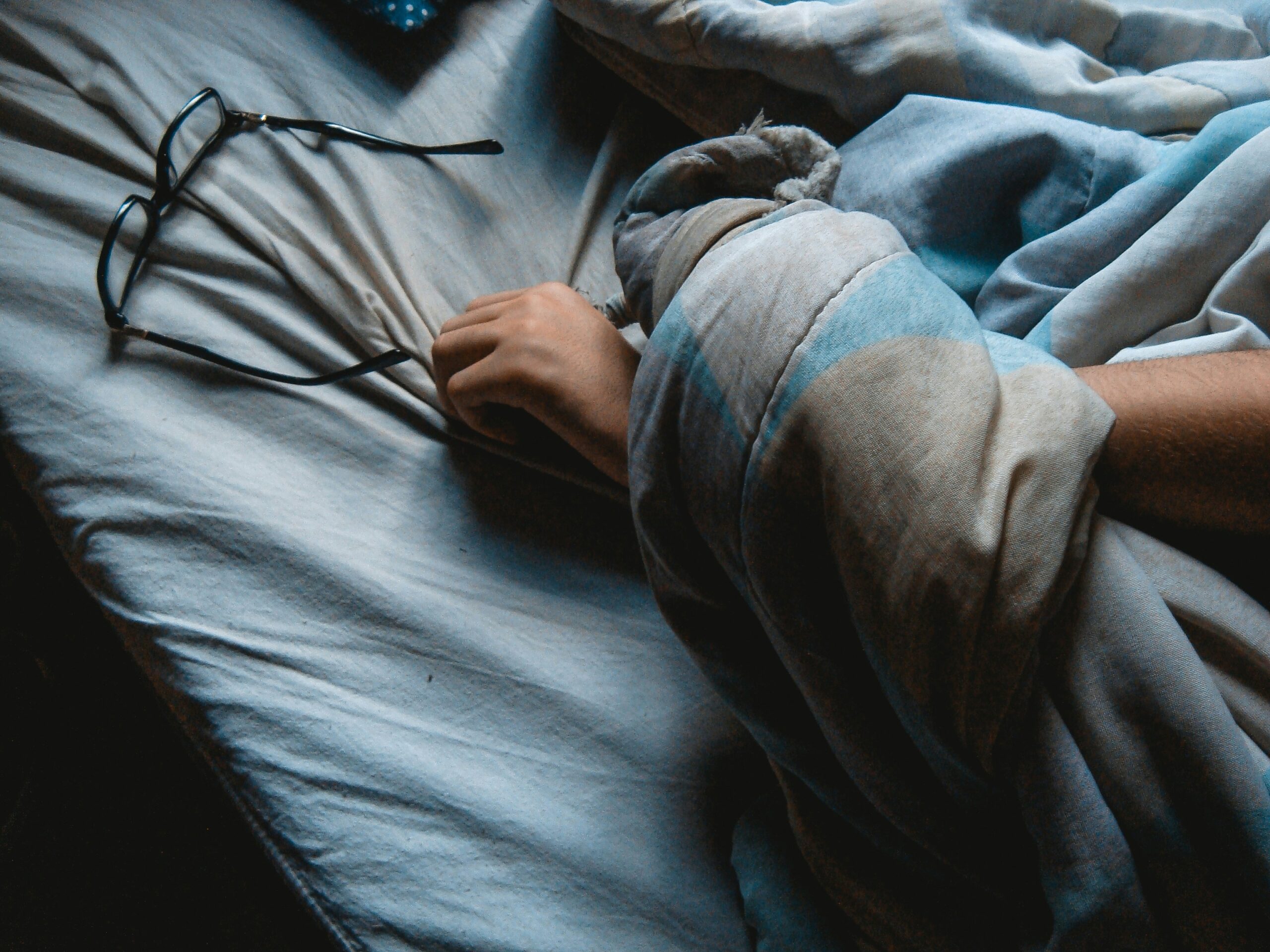Why does menopause disrupt sleep?
Some women are lucky enough to experience few menopause symptoms, others can experience huge upheaval which can impact daily life, from relationships and work to sleep and social and family life.
Up to 50% of women are understood to be significantly affected in their day to day life and nightly sleep – but what is going on in the body that makes this happen?
Before the dawn of menopause (pre-menopause) the majority of women have regular periods and set rhythms in the rise and fall of hormones which can affect sleep on a monthly basis.
As it gets close things can become irregular and erratic in terms of decreasing hormone levels which can lead to menopause and sleep deprivation.
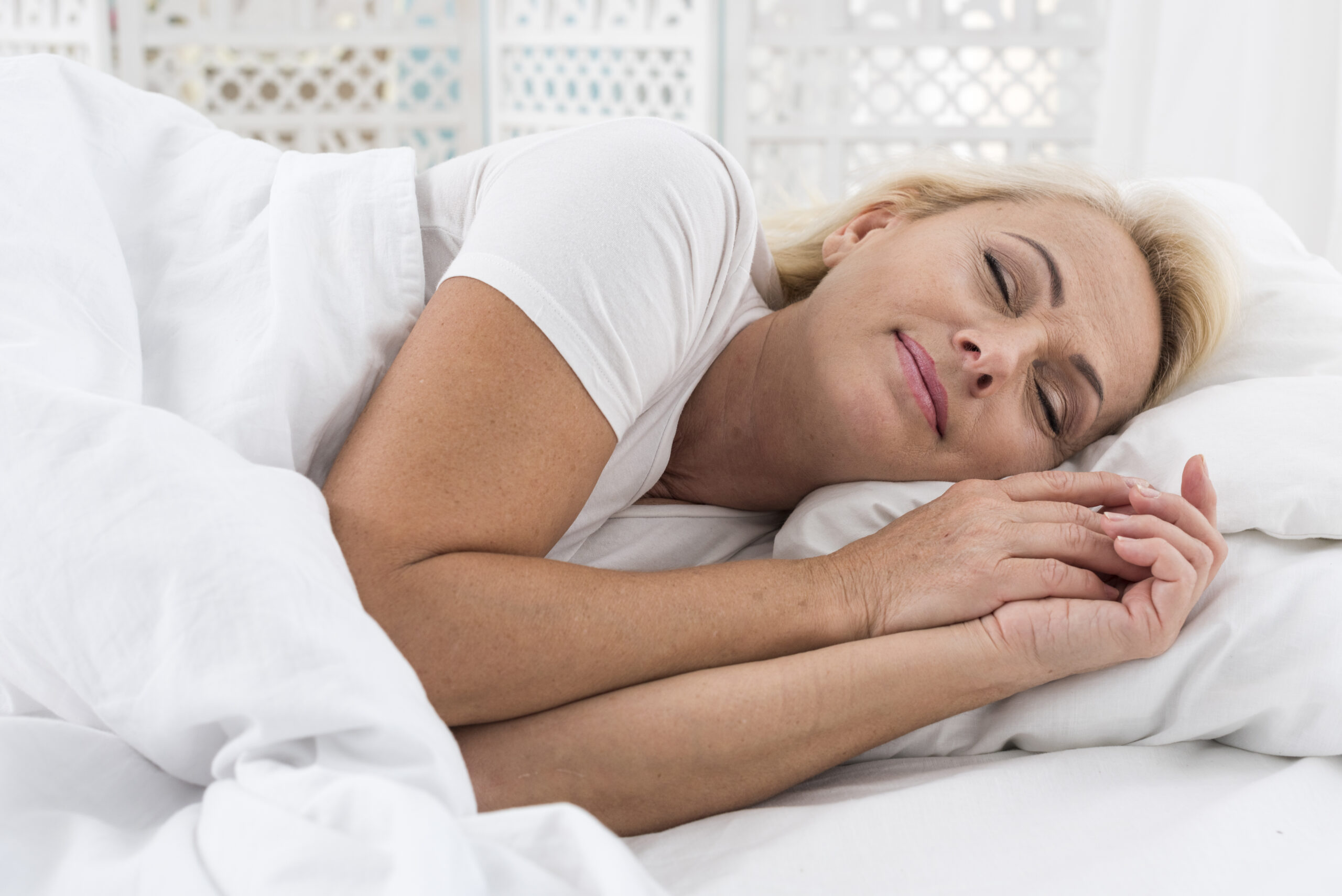
How does menopause cause sleep disruption?
With the backdrop of one of the busiest times of a woman’s life – revolving around family, career and daily juggling to keep pace – future menopausal sleep problems can be waiting in the wings.
If you’ve suffered from sleep issues before menopause, you’re much more likely to suffer during.
Occasional sleeplessness can escalate for some women thanks to the depleting levels of a range of hormones which begin during the peri-menopause stages, occurring when women are in their 40s.
The main hormones understood to be at the root of menopause sleep problems are oestrogen, progesterone, cortisol and melatonin.
It’s easy to see why oestrogen is a key player in menopause and sleep disorders as not only does it help to regulate body temperature when we sleep, it has a whole range of nocturnal functions.
At normal levels oestrogen can help us drop off, reduce the number of times we wake up in the night, increase REM sleep which is crucial for mood, memory and daily function, increase sleep time and regulate the production of serotonin, a known mood booster.
Oestrogen’s often dramatic ups and downs during menopause are responsible for hot flushes, sweats and palpitations – all known as vasomotor symptoms.
Around 60-80% of women are thought to suffer from hot flushes – a sensation of heat usually in the face, neck and head. They can leave you feeling anxious and give you chills as well as feeling hot.
As well as waking you up, some research suggests waking up can also trigger a hot flush.
Progesterone is known for its sedative effect and also helps regulate breathing while you sleep.
Which brings us to sleep apnoea.
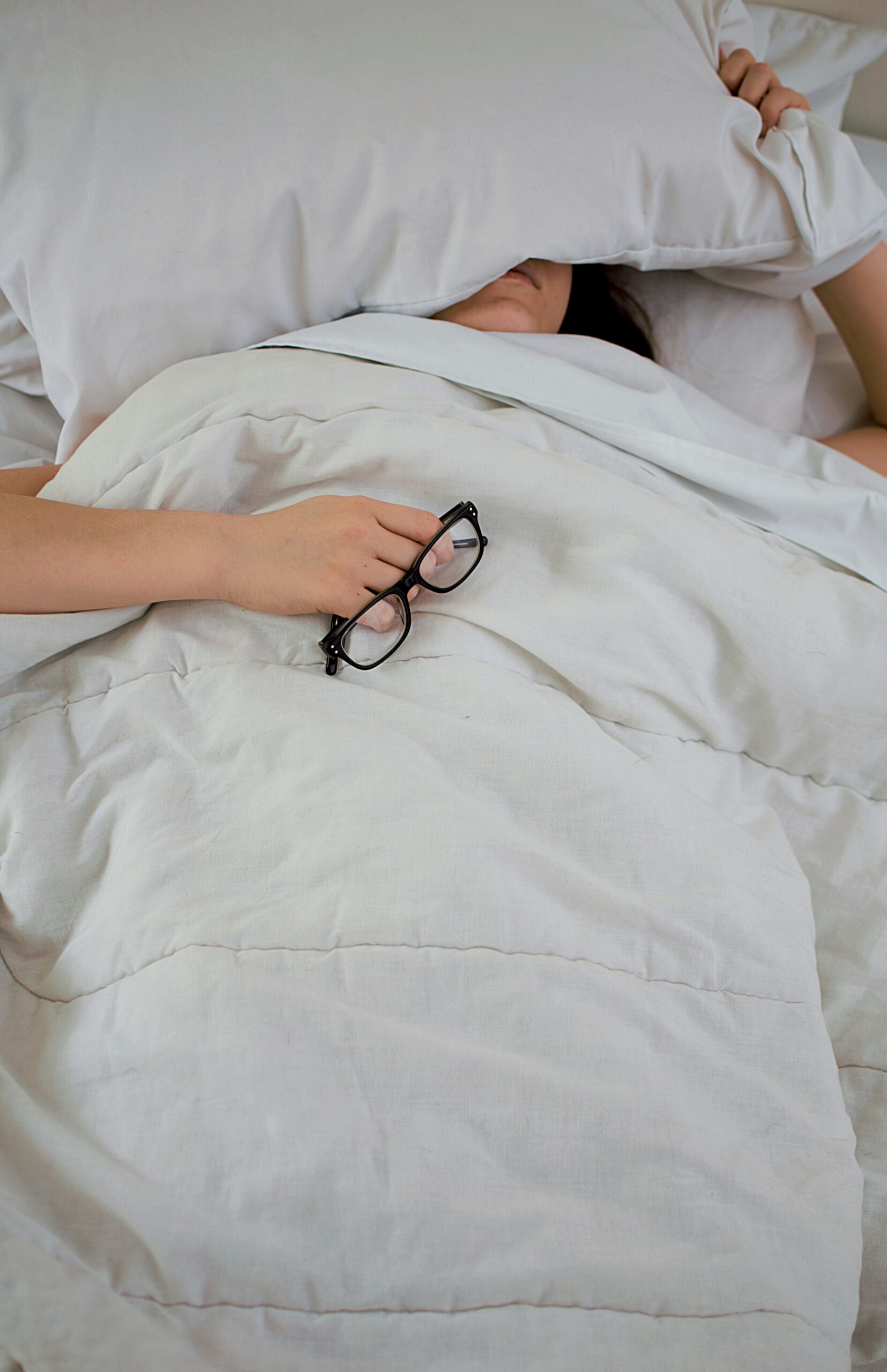
Sleep Apnoea and sleep
While less common – it’s estimated to affect up to 20% of women during menopause – sleep apnoea causes you to stop and start breathing while you’re asleep, usually as a result of the muscles at the back of the throat becoming too relaxed.
It can disturb sleep several or many times a night and a sufferer might not even know it’s happening but you may feel it’s after affects such as excess tiredness the next day.
You can also wake up with headaches with sleep apnoea and it can cause irritability and low mood.
Sleep apnoea and anxiety are also linked.
It’s thought that decreasing levels of progesterone could increase the risk of sleep apnoea in peri-menopause and menopause and peak in post-menopause.
Melatonin is often referred to as the sleep hormone – it’s released in the brain in response to light levels so as it gets darker it kicks in and as it gets lighter in the morning it slows and stops.
Although it decreases as we get older, it can do so significantly during menopause.
Cortisol is known as the stress hormone giving us the ‘fight or flight’ response to warn the brain of danger.
It increases when we’re scared or stressed making us feel more anxious, and levels of cortisol are known to increase at night during menopause, especially after a hot flush.
It can leave you feeling fully awake and make it difficult to get back to sleep.
And if you’ve suddenly started waking up needing to go to the loo several times a night, here’s why it might be happening.
It’s known as nocturia and can be triggered when oestrogen starts to deplete during peri-menopause.
Reducing oestrogen levels can cause the bladder to reduce in size meaning less capacity, so it can cause the bladder to be overactive.
Also, other menopause related sleep issues such hot flushes and sleep apnoea can make you thirstier and the mouth drier which might make you want to drink more.
With this cocktail of decreasing hormones – and a few more hormonal changes besides – it’s no wonder menopausal woman can suffer from sleep deprivation and sleep disorders.
On the brighter side, ongoing research is helping to highlight the commonality of this problem, increase understanding and develop new treatments – and for sufferers we know that can’t come soon enough.
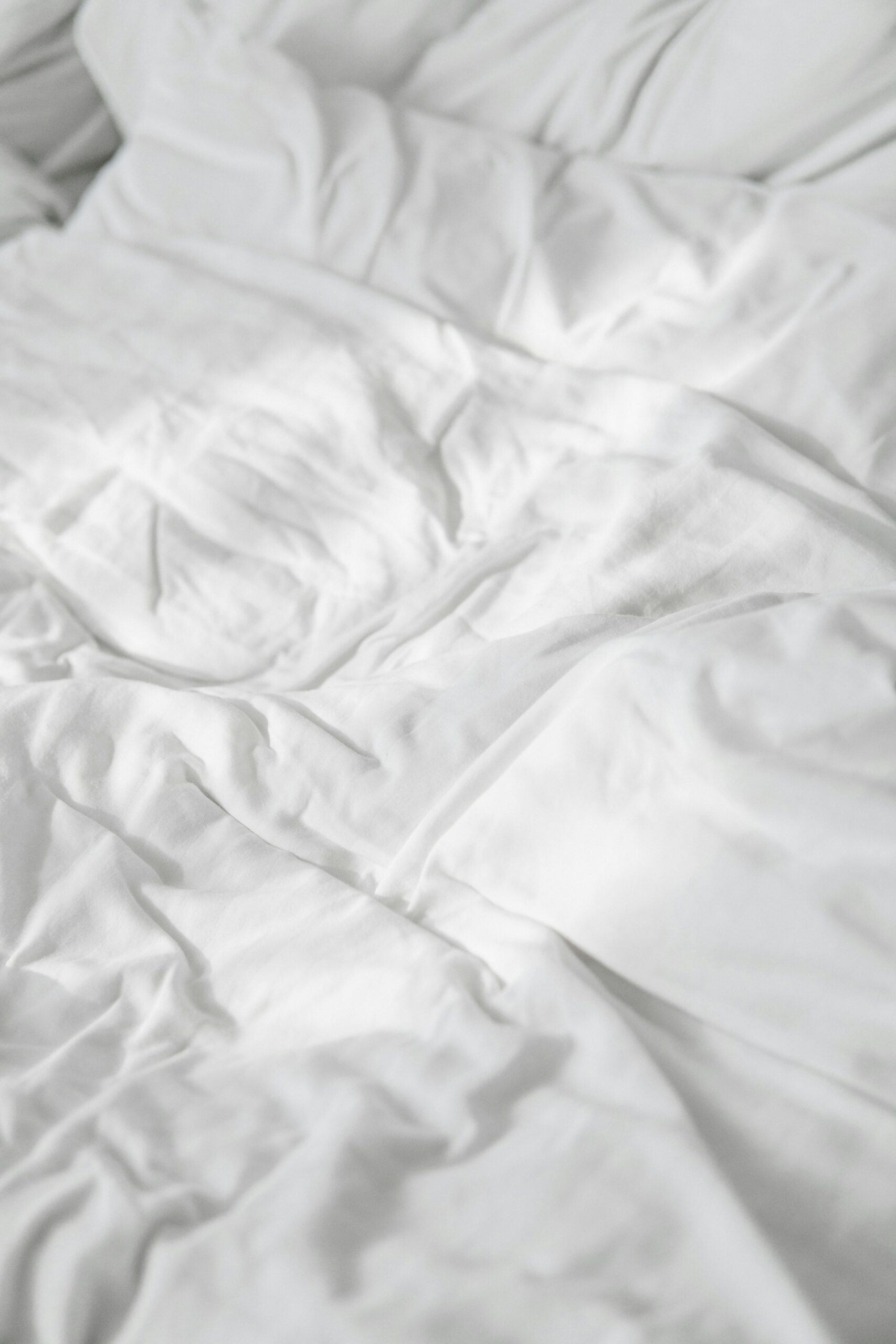
Restless leg syndrome and menopause – how do they both affect my sleep?
Sleep apnoea and hot flushes aren’t the only menopausal symptoms that can affect a woman’s sleep – there’s also a high reporting rate of restless leg syndrome (RLS) and menopause.
RLS is a nervous system condition that causes an overwhelming urge to move your legs which is often worse at night or in the evening.
It’s a common condition which is twice as common in women as men and it’s thought as well as being related to iron deficiency, fluctuating oestrogen levels – oestrogen plays a role in muscle relaxation – may also contribute.
The exact causes of RLS aren’t fully understood but restless legs and menopause are said to be more linked rather than caused by this time of life process.
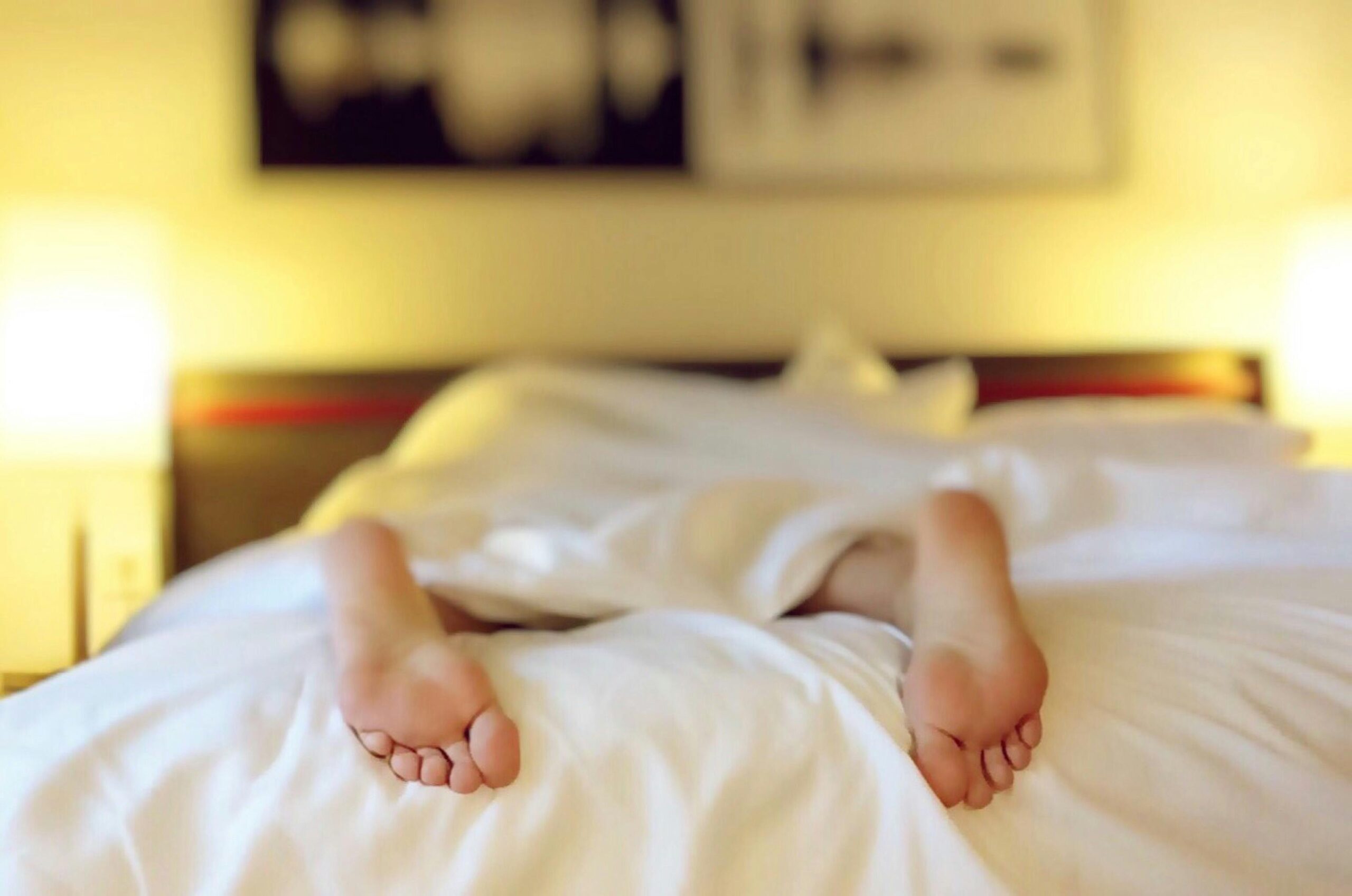
How can I help to minimise sleep disruption from menopause?
Although menopause can make sleep more difficult, there are many small lifestyle changes that can make a big difference.
Try incorporating these simple habits into your routine to support better, more restful sleep:
- Keep your bedroom cool and airy to help reduce night sweats and stay comfortable.
- Use layered bedding so you can easily adjust your warmth through the night.
- Choose lightweight, breathable sleepwear – natural fabrics like cotton and linen are ideal.
- Avoid spicy foods in the evening, as they can trigger hot flashes and indigestion.
- Cut down on stimulants such as nicotine, caffeine, and alcohol, especially before bed.
- Limit screen time before sleep, instead try reading a book, listening to a podcast or relaxing music to help you drift off.
- Stick to a calming bedtime routine to help signal to your body that it’s time to wind down.
- Stay active during the day, but try to finish any intense exercise a few hours before bedtime.
- Practice stress management techniques, like yoga, meditation, mindfulness or journaling, to help calm your mind and body.
If you’re experiencing sleeplessness due to menopause and lifestyle changes and self-management techniques aren’t working, you should speak to your GP.
